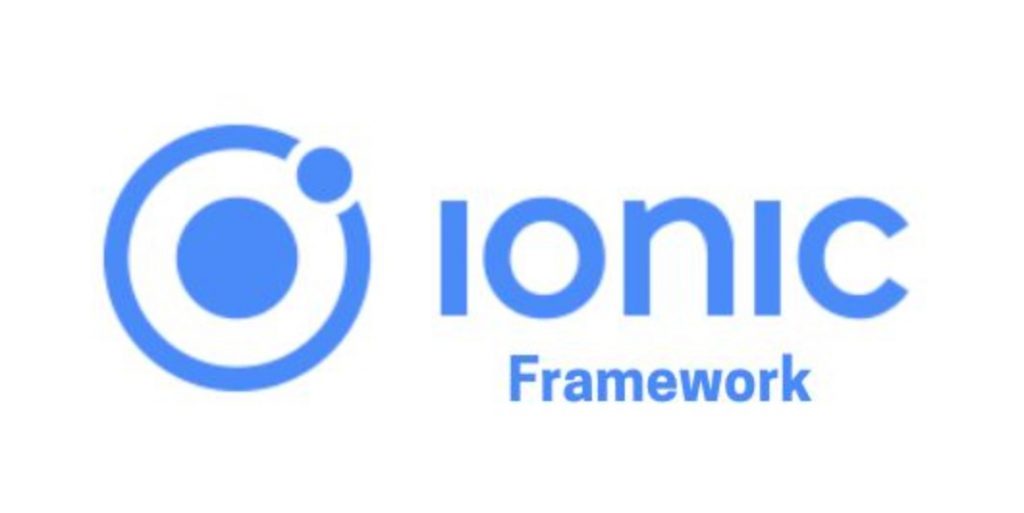The development of hybrid applications is necessary for companies because the number of mobile phone users has increased, which means that the demand for mobile applications has also increased. Factors such as budget, time to market, and overall reach must be considered when deciding between native and hybrid mobile app development. The popularity of hybrid app development is highlighted by its adoption in the most popular retail apps, highlighting its effectiveness in combining web technologies with native execution. This article aims to break down the details of hybrid application development and learn about its benefits, limitations, and the hybrid application development framework that these versatile applications provide. As we explore hybrid app development services and mobile hybrid app development, we’ll see why it’s becoming the go-to approach for companies looking to impact the mobile space significantly.
- Hybrid apps offer cost-efficiency and faster time to market.
- Accessible across platforms using a single codebase enhances user reach.
- Ficus Technologies specializes in cutting-edge hybrid app development services.
What is hybrid mobile app development?
Hybrid mobile app development is an innovative approach that allows you to create apps that are compatible with Android, iOS, and Windows using a single code base, unlike traditional native app development, which requires different languages for each platform. This method utilizes hybrid app development frameworks such as React Native, Flutter, and Xamarin, making mobile hybrid app development efficient and cost-effective. The growing demand for hybrid app development services emphasizes its benefits, including rapid development, cross-platform functionality, and significant cost savings, positioning hybrid mobile app development as the preferred choice for businesses worldwide.

How Do Hybrid Apps Work?
Hybrid app development uses web technologies (JavaScript, CSS, and HTML) to build apps. With the help of hybrid app development frameworks such as Ionic or React Native, the code is encapsulated in a native shell, which allows hybrid mobile apps to run in built-in browsers on specific platforms. This unique approach allows developers of hybrid mobile applications to access the device hardware (GPS, camera) using plugins, mirroring the capabilities of native applications. Hybrid app development services use this strategy of a single code base for compatibility with different OSes, simplifying the development process. This efficiency makes hybrid app development a cost-effective and versatile choice for deployment across different mobile ecosystems.
Advantages of Hybrid Mobile Application Development
While creating hybrid apps offers benefits and drawbacks, we will focus on the former for now.
- Ease of development
The ease of development when creating hybrid applications greatly simplifies the process, requiring only a single codebase using web technologies such as HTML, CSS, and JavaScript. This hybrid mobile app development approach eliminates the need to learn different programming languages for each platform, offering a streamlined development cycle thanks to universal hybrid app development frameworks such as Xamarin, Flutter, and React Native. Hybrid app development services make it easier for developers to increase productivity and efficiency.
- Less time to market
Reduced time-to-market is an important benefit of hybrid app development, allowing companies to deploy their applications faster. Thanks to using a single code base on different platforms, the hybrid development of mobile applications does not require different code bases, which significantly speeds up the development process. This efficiency accelerates deployment and ensures that hybrid app development services can quickly meet market demands, benefiting companies through faster user onboarding.
- Cross-platform compatibility
Cross-platform compatibility is at the heart of hybrid application development, which allows one application to work seamlessly on different platforms. This unique feature of hybrid mobile app development ensures that companies can reach a wider audience without spending additional time and money developing apps for specific platforms. With the help of hybrid app development frameworks, developers can easily achieve such interoperability that makes developing hybrid mobile apps a smart choice for maximum market reach.
- Easy scalability
Ease of scalability is another hallmark of hybrid app development, offering companies the flexibility to extend their apps across platforms without major rework. Hybrid mobile app development uses shared code bases, making it easy to add new features or adapt to different devices and operating systems with minimal effort. This scalability ensures hybrid app development services can grow with your business needs, providing a future-proof solution.
- Cost-effective
Cost-effectiveness is a significant advantage of hybrid app development, as it reduces the need for multiple development teams and specialized resources for different platforms. Hybrid mobile app development uses a unified code base, reducing development and maintenance costs. This cost-effective approach frees up resources for other areas, increasing overall profitability and efficiency of hybrid application development services.
- User experience
When developing hybrid applications, priority is given to user experience, which ensures consistency and attractiveness of interfaces on different platforms. Hybrid mobile app development achieves this by reusing design elements, providing a unified experience that increases brand awareness and user satisfaction. This focus on a holistic user experience underscores the value of hybrid app development frameworks in building high-quality cross-platform applications.
- Easy maintenance
Ease of maintenance is a compelling advantage of hybrid application development, simplifying updates and bug fixes through a single, unified code base. This approach to developing hybrid mobile applications simplifies maintenance by allowing them to be updated simultaneously on all platforms, reducing downtime and ensuring a consistent user experience. Hybrid app development services benefit from this simplified service, ensuring that apps stay current and secure with less effort.
Treating your users as co-developers is your least-hassle route to rapid code improvement and effective debugging.
Eric S. Raymond
Disadvantages of hybrid app development
Now, let’s talk about the drawbacks of hybrid apps.
- Slow performance
Slow performance is a notable drawback of hybrid app development, as the unified codebase designed to function across multiple platforms can lead to bulkier applications. This aspect of hybrid mobile app development often results in decreased speed and efficiency compared to native apps tailored specifically for one platform. The reliance on hybrid app development frameworks can sometimes limit access to advanced native features, negatively impacting mobile hybrid app development performance and user experience.
- Takes time to roll out new features
Takes time to roll out new features in hybrid app development due to the dependency on third-party hybrid app development frameworks. These frameworks may not be as swiftly updated as the native development tools, delaying the introduction of the latest features into hybrid mobile app development projects. This lag can disadvantage hybrid app development services, as it may slow the pace at which mobile hybrid app development can innovate and meet evolving user expectations.
- Test complexity
Test complexity in hybrid app development poses significant challenges, as ensuring functionality across diverse devices and operating systems amplifies the testing process. This complexity is heightened by the shared codebase of hybrid mobile app development, which necessitates extensive compatibility testing. The blend of native and web components within hybrid app development frameworks further complicates testing, making it a more intricate task for hybrid app development services to guarantee a seamless user experience across all platforms.
Six Stages of Hybrid App Development
Developing a hybrid mobile application includes six critical stages, from initial planning to maintenance. It integrates web technologies with native execution, providing a seamless combination that efficiently and effectively delivers robust cross-platform applications.
1. Planning
The hybrid app development process begins with meticulous planning. This crucial stage determines if hybrid mobile app development is the right choice for your project. It involves selecting the essential features and the appropriate hybrid app development frameworks. Successful planning ensures that hybrid app development services align with your business goals, laying a solid foundation for the mobile hybrid app development journey.
2. Designing the architecture/interface
At this stage, the hybrid app development process transitions to designing a user-friendly interface and robust architecture. Effective hybrid mobile app development relies on software architects and designers who create a seamless user experience across different platforms, using hybrid app development services to analyze business requirements and stakeholder inputs. This ensures that the hybrid app development frameworks support a scalable and secure application.
3. Development
The development phase is where the actual coding happens. Using chosen hybrid app development frameworks, developers create a high-performing back end and an engaging front end. This phase is pivotal in hybrid mobile app development, as it brings the planned features to life, ensuring the app is robust, secure, and visually appealing, thanks to the comprehensive hybrid app development services.
4. Testing and debugging
Hybrid app development requires rigorous testing and debugging to ensure optimal platform performance. This stage in hybrid mobile app development involves thorough checks for both the front and back end, identifying and fixing bugs. It’s essential to ensure that the hybrid app delivers on the promise of a seamless user experience, leveraging hybrid app development services for efficient problem resolution.
5. Deployment
Deployment is a critical milestone in hybrid app development, where the app is launched across multiple platforms. This stage makes the hybrid app accessible to users, who can download and install it on their devices. Successful deployment in hybrid mobile app development requires adherence to platform-specific guidelines and a smooth roll-out process facilitated by hybrid app development services.
6. Maintenance
Post-deployment, hybrid app development enters the maintenance phase. This ongoing process involves regular updates to fix bugs, enhance functionality, and improve user experience. Effective maintenance is crucial for keeping the hybrid app competitive, requiring hybrid app development services to stay updated with the latest trends and technologies in hybrid mobile app development. This ensures the app remains relevant and continues to meet user expectations.
Interested in hybrid application development?
Contact UsHybrid app frameworks
Hybrid app frameworks offer versatile development tools, each with unique features, to streamline the creation of cross-platform mobile apps. These frameworks allow developers to build applications using shared code bases across multiple platforms efficiently.
React Native

React Native is the backbone of hybrid app development, backed by Facebook in 2015 and quickly adopted by giants like Uber and Instagram. This hybrid application development framework is great for building cross-platform UI components using JSX and integrating them tightly with native code. React Native excels in mobile hybrid app development, offering up to 90% code reusability across Android and iOS, backed by a large community and plenty of plugins to access device hardware, which greatly accelerates the hybrid app development process.
Ionic

Ionic stands out among hybrid mobile app developers due to its use of HTML, CSS, and JavaScript, complemented by AngularJS support. Ideal for building Progressive Web Apps (PWAs), Ionic is known among hybrid app development frameworks for its advanced UI components and front-end capabilities. It streamlines hybrid app development with pre-built customizations and integrates testing and debugging tools, making it a favorite for developers familiar with Angular.
Cordova

Cordova, formerly PhoneGap, is a basic hybrid app development framework using HTML5, CSS3, and JavaScript. Its unique web browsing functionality and extensive plugin library facilitate excellent interoperability with device features, positioning Apache Cordova as the universal choice for hybrid application development services. This allows mobile hybrid app developers to create apps that provide a consistent user experience across platforms.
Xamarin

Xamarin, Microsoft’s hybrid app development product, uses C# to build apps that run on iOS, Android, and Windows. It is a standout product in hybrid mobile app development, enabling up to 90% cross-platform code reuse, delivering native-like performance. Xamarin enriches the hybrid application development services ecosystem with robust testing tools and a full set of development tools, simplifying developers’ upgrade and maintenance process.
Flutter

Flutter is a fast-growing hybrid app development backed by Google and popular for its dynamic and robust framework. It is revolutionizing the development of hybrid mobile applications with its ability to create a customizable user interface and ensure fast delivery. Flutter has become the leading hybrid app development framework, adopted by major brands for its efficient single-code testing and ability to build apps that rival native performance, demonstrating its prowess in hybrid mobile app development.
Examples of hybrid apps
The rise of hybrid app frameworks has enabled large corporations to develop mobile applications that combine superior performance, functionality, and user interface. Among them, five outstanding hybrid mobile applications have achieved worldwide popularity, demonstrating the potential and versatility of hybrid application development.
Gmail

Gmail, a hybrid mobile app development pioneer, demonstrates Google’s commitment to using hybrid app development frameworks. With the transition to HTML5, Gmail has significantly improved the user experience by fully integrating its features and web elements. This evolution emphasizes the efficiency and adaptability of hybrid app development services, allowing Gmail to implement advanced features and maintain its status as a success story in developing high-performance hybrid apps for mobile devices.

Twitter is an example of mastery of hybrid app development in handling huge daily traffic volumes. A testament to the growth of hybrid mobile apps is that Twitter’s infrastructure can handle millions of interactions, proving that hybrid app development services can achieve peak performance. The social media giant uses hybrid app development frameworks to provide a robust, scalable platform, demonstrating the potential of hybrid mobile app development to support large-scale user engagement.

Instagram’s success as a leading image and video-sharing platform is partly due to its hybrid app development strategy. Using hybrid mobile app development, Instagram supports a wide range of media content and offline data access, offering a convenient experience. The app’s ability to provide offline access to features and media consumption highlights the benefits of hybrid app development services and hybrid app development frameworks, making it outstanding in mobile hybrid app development.
Uber

Uber’s dominance in the ride-sharing sector is due to its hybrid approach to app development. Simple application navigation and intuitive design, characteristic features of hybrid mobile app development, make it extremely user-friendly. Uber’s success story highlights the effectiveness of hybrid app development services in creating accessible, user-friendly apps, setting a high standard for hybrid mobile app development in the services industry.
Untappd

Using hybrid app development frameworks, Untappd has carved out a niche for beer lovers to explore and share beer experiences. The platform’s hybrid app development strategy allows users to discover beer, share recommendations, and track location, all in a user-friendly interface. Untappd’s functionality and community-building features are examples of innovative use of hybrid mobile app development, proving that hybrid app development services can create engaging social apps in a hybrid mobile app development environment.
Final words
Thus, hybrid app development is a calculated choice for companies that want to achieve significant digital impact quickly and efficiently. By using hybrid app development frameworks, companies can leverage the power of hybrid mobile app development to create apps that offer a seamless user experience across platforms. This approach optimizes resources and reduces time to market, which is an important advantage in today’s fast-paced world. With hybrid app development services, companies can balance performance, cost-effectiveness, and widespread availability, making hybrid mobile app development an attractive option for startups and established enterprises.
With a deep understanding of hybrid app development frameworks and a commitment to using the latest hybrid mobile app development technologies, Ficus Technologies can help companies unlock the full potential of their digital products. Whether you’re looking to enhance an existing app or start a new hybrid app development project, Ficus Technologies offers the expertise and services you need to bring your vision to life, ensuring your app is functional and competitive.
Hybrid apps are highly favored in mobile app development due to their cost-effectiveness and efficient development process. They allow developers to write code once and deploy it to multiple platforms, including iOS and Android, reducing development time and costs. This approach uses web technologies such as HTML, CSS, and JavaScript, making it accessible to more developers. Hybrid apps can also access device features through plugins, offering a user experience close to native apps. Their ability to work offline and ease of maintenance and upgrades further increase their appeal, making them the optimal choice for businesses looking to reach a large audience quickly.
Favoring hybrid apps over native apps can be beneficial for several reasons. Hybrid apps provide a faster, more cost-effective solution for reaching a wider audience on multiple platforms (iOS, Android) with a single codebase. This approach significantly reduces development time and costs compared to creating separate native apps for each platform. Hybrid apps also balance native performance and web flexibility, making them suitable for various applications without compromising user experience. In addition, they simplify maintenance and upgrades because changes need to be made only once and can be distributed to all platforms simultaneously.








